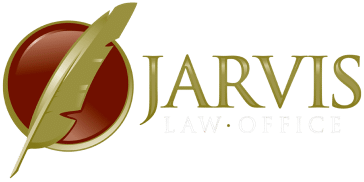Many Ohio seniors and their family members worry about the future when they consider the potential legal and financial hurdles of asset protection, long-term care, wills and trusts, estate taxes, and other aspects of estate planning.
The key to your peace of mind is consulting an experienced estate planning attorney to make a detailed plan for the future and prepare for any eventuality. Our trust and estate attorneys at Jarvis Law are here to answer all your questions about estate planning and long-term care in Ohio.
My Loved One Is in a Nursing Home. Is It Too Late to Protect Their Assets?
Even if your family member is already in a nursing home, it may be possible to protect a significant portion of their assets. While married seniors usually don’t have to sell their homes to qualify for Medicaid, after they pass away, the state may file a claim against their property, a move called “estate recovery.” Single seniors usually do have to sell their homes to qualify for Medicaid. They then must use the proceeds of the sale of their home to pay for their care, along with most of their life savings, before Medicaid will help with their care costs. A
One legal way to ensure the state doesn’t take an elderly person’s house after their death is to place the house in a long-term care trust. A trust and estate attorney can advise you on setting up a trust or using other legal strategies to protect your loved one’s assets.
My Loved One Has Been Diagnosed with Dementia. Is It Too Late to Do a Power of Attorney (POA)?
The answer to this depends on the current mental state of the loved one. Generally, a person in the early stages of dementia can still sign a POA if they are mentally capable of understanding the legal meaning of this document.
An elder law attorney can help you determine whether you can still obtain powers of attorney for your elderly family member with dementia. Otherwise, guardianship or conservatorship may be your family’s only option.
If I Work with an Estate Planning Attorney, Do I Have to Change Financial Advisors?
A trusted financial advisor can play an essential part in your estate planning strategy. Usually, your estate planner and your financial advisor can work as a team to help you determine your financial goals and the best way to protect your assets.
If I Put My Things in a Trust, Can I Still Control Them and Take Money Out Myself?
It is essential to distinguish between different types of trusts, such as revocable living trusts, irrevocable trusts, and charitable remainder trusts.
A living trust can help you avoid probate, assist you in the event you become incapacitated, and serve other legal purposes. If you set up a revocable living trust and name yourself as the trustee, you can move money and assets in and out of the trust as you see fit.
An Asset Protection Trust, which is a hybrid irrevocable trust, does everything that a revocable living trust does and provides additional protections. These protections include:
- Assets are legally help outside the scope of Medicaid’s view
- Assets are still within the control of the person who established the trust
On the other hand, an old-fashioned irrevocable trust can offer you more estate tax benefits and means a complete and irreversible loss of control over trust assets.
If My Child Gets a Divorce, Will They Lose Everything I Give To Them?
If your adult child plans on getting a divorce, you may wonder what happens to the inherited and gifted property during asset division. Ohio is an all-property, equitable distribution state, which means that, in principle, inherited property counts as a marital asset subject to division during divorce.
However, your child may retain their inheritance or gift as an individual property if they keep it separate from other marital assets and follow specific rules regarding how they use any portion of the funds you might leave to them. Another option you may consider is passing an inheritance or gift to your adult child in a living trust.
I Own My Home and Have Retirement Accounts and Savings. Can I Ever Qualify for Medicaid to Help Pay for Long-Term Care?
According to Medicaid policy, seniors are supposed to pay for long-term care out of pocket until their savings run out. Medicaid only steps in when the elderly person becomes “impoverished” by the program’s standards.
However, there are several legal strategies you can use to protect your assets and still qualify for Medicaid, such as:
- Asset protection trusts-hybrid irrevocable trusts
- Income trusts
- Medicaid-compliant annuities
However, keep in mind that Medicaid has a five-year look-back period in Ohio for all transferred assets, whether the applicant passed them to a family member or a trust. That’s why it is best to start planning for Medicaid long before you need long-term care. An elder care attorney can help you determine the most effective Medicaid strategy in your case.
However, the five-year lookback is not all or nothing. An experienced elder law attorney can still protect a significant amount even when someone needs care now.
Jarvis Law Office: Elder Law and Asset Protection for Ohio Seniors
At Jarvis Law, we believe in helping seniors protect their assets, preserve their personal dignity, and maintain control in every scenario. We provide reliable legal counsel in all areas of elder law, estate planning, and asset protection.
With Jarvis Law, your future is in your hands. Contact us today to request a free consultation. We can talk to you over Zoom or meet you in one of our three office locations. Please call us at one of our three offices: Lancaster (740) 653-3450, Dublin (614) 495-4185, or St. Clairsville (740) 699-2193. You can also contact us using our online form.
We also provide three in-person workshops (one near each of our three offices) and a Saturday live webinar each month.
Copyright© 2021. Jarvis Law Office, P.C. All rights reserved.
The information in this blog post (“post”) is provided for general informational purposes only and may not reflect the current law in your jurisdiction. No information in this post should be construed as legal advice from the individual author or the law firm, nor is it intended to substitute for legal counsel on any subject matter. No reader of this post should act or refrain from acting based on any information included in or accessible through this post without seeking the appropriate legal or other professional advice on the particular facts and circumstances at issue from a lawyer licensed in the recipient’s state, country or other appropriate licensing jurisdiction.
Jarvis Law Office, P.C.
904 N. Columbus Street
Lancaster, OH 43130
(740) 653-3450
https://www.jarvisfirm.com



